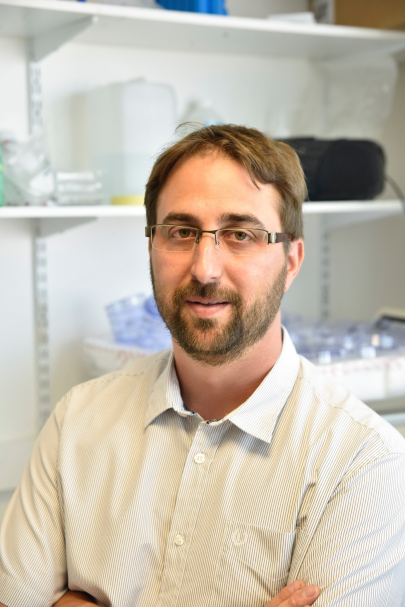Christophe LachaudCentre de recherche en cancérologie de Marseille (CRCM) - CNRS / Inserm / Université Aix-Marseille / Institut Paoli et Calmettes
Mes recherches
Mes recherches combinent des approches de génomique moléculaire et de biochimie pour étudier l’impact de molécules utilisées en chimiothérapie sur le tissu sanguin. Après une thèse dans le domaine des intéractions plantes pathogènes (2006-2010) j’ai réalisé au Protein phosphorylation Unit à l’université de Dundee, un postdoctorat dans le laboratoire de John Rouse pour travailler sur l’étude des voies de réparation de l’ADN dérégulées dans les cancers.
J’ai été recruté au CNRS en tant que Chargé de Recherche de première classe en 2016 et ai obtenu l’ATIP-Avenir la même année. J’ai créé en 2017 l’équipe « Lésions de l’ADN par pontage inter-brin et maladies du sang » au centre de recherche en cancérologie de Marseille grâce au soutien des financements ATIP-Avenir. Au cours des deux premières années j’ai développé de nouvelles molécules qui permettrons de lever les verrous technologiques auquel nous faisons actuellement face. Grace à ces molécules nous pouvons maintenant détecter finement les conséquences de molécules utilisée en chimiothérapie sur l’ADN de cellules. J’ai obtenu aujourd’hui un financement ANR nommé Declick qui permettra d’aller au-delà des objectifs précédemment fixés.
Mon projet ATIP-Avenir
LEUKAEMIA SENSITIZATION TO CHEMOTHERAPY BY TARGETING INTERSTRAND CROSSLINK REPAIR
DNA inter-strand crosslinks (ICLs) are toxic lesions that covalently link the two DNA strands. Defects in ICL repair in humans cause predisposition to leukaemia. Conversely, since ICLs are highly toxic for rapidly replicating cells such as those found in cancers, ICL-inducing drugs are heavily used during chemotherapy. In this context, advancing our knowledge of ICL repair is essential for further understanding the relationship between ICLs and cancer. A major challenge has been our limited ability to detect and quantify the induction and removal of ICLs. I have recently developed new methods to detect and purify ICLs in human cells. By combining these methods with CRISPR genome editing, I will unravel the molecular mechanisms involved in ICL repair. I will first focus on the nuclease Fan1, which is already known to have a role in ICL repair. Then I will identify and characterize new proteins involved in the repair of ICLs. Given the relationship between ICLs and cancer, I will next investigate the function of identified proteins in the context of cancer cells. Leukaemia is one of the biggest killers of all cancers, especially amongst children, and ICL-inducing agents such as anthracyclines are commonly used for leukaemia treatment. Therefore I will focus on leukaemic cancer cells, in order to identify ICL repair proteins to target to increase the efficiency of these chemo treatments. This aspect of my project will be done in collaboration with the clinicians of the Cancer Research Center of Marseille. Finally, I will develop small molecule inhibitors against these target proteins, in order to mimic the results seen in the genetic screens with a chemical approach. By deciphering the mechanism of ICL repair and by identifying new drugs, the proposed project will improve the detection and treatment of leukemia.
